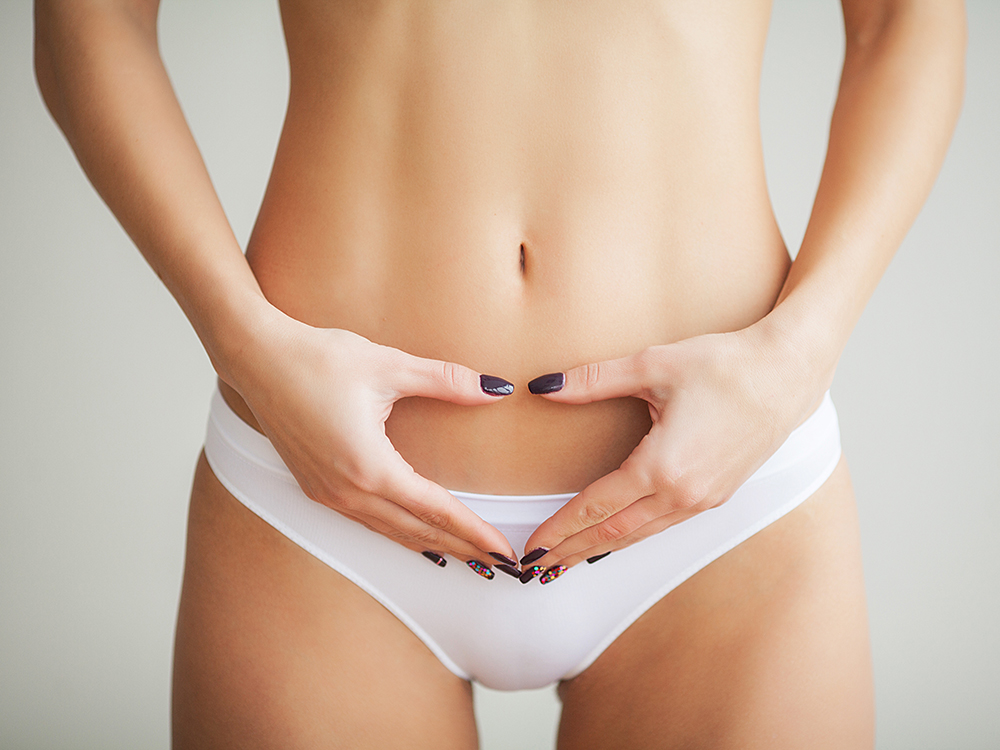Every question you've ever wanted to ask a gynaecologist answered
Fanny FAQs


Celebrity news, beauty, fashion advice, and fascinating features, delivered straight to your inbox!
You are now subscribed
Your newsletter sign-up was successful
Fanny FAQs
Here at Marie Claire, we are all on board for talking about our vaginas more. The past year has seen a step in the right direction - Bodyform launched a campaign to encourage more vajayjay chat, and beauty destination Cult Beauty created a section on their website dedicated to vaginal health.
But there is still much mileage to take on this path. Not everyone is game for fanny chat and would rather keep schtum. Which is why put some frequently asked questions to a gynaecologist. Because if you can't ask your friends, at least you can find out more from us.
We chatted to consultant gynaecologist Sara Mathews, about everything from how to look after you vagina, to the smell and taste.
The first thing she wanted to get across was getting our anatomy right: 'The vagina only refers to the inside bit that is covered with a special and very soft type of skin. However, when girls talk about their vaginas, they usually don’t mean the anatomical inside vagina thing-a-me-bob, they are usually referring to the outside bits - the labial folds and the skin around the clitoris and anus. This is called the vulva.'
Is your vagina self cleaning? Or should you wash it with something specific?
SM: 'So to be clear the vagina is the inside part and the vulva is the outer. The vagina cleans itself. It's all about keeping the pH in balance. The pH of the vaginal fluid is around 4.5, which makes it acidic. It is maintained that way by the vaginal microbiome. The good bacteria in the microbiome (officially called lactobacillus) produces lactic acid that reduces the pH and prevents infections. Infections are caused when these good bacteria are killed and other ‘bad’ bacteria take over. This can happen if someone is on antibiotics, which can cause thrush, or after sex, because sperm is alkaline. If a fishy odour occurs, it can indicate an overgrowth of the bad bacteria called bacterial vaginosis. Bacterial vaginosis is an imbalance of those good and bad bacteria. It is usually treated using vaginal antibiotic cream or gel, or a short course of oral antibiotics. A pH balancing vaginal gel once or twice a week and an oral probiotic can help prevent recurrence.
In the 60s there was a trend for something called vaginal douches, which involved squirting water, often mixed with vinegar, into your vagina. This removed all of the good lactobacilli, leaving everything too clean, and a prime environment for bad bacteria to invade.
Celebrity news, beauty, fashion advice, and fascinating features, delivered straight to your inbox!
However, you should wash your vulva on a daily basis. As you know the vulva is naturally covered in hair, which serves to cushion the labia and trap particles, sweat and dead skin cells. Secretions collect in the folds of the labia, so if it isn't washed on a regular basis, then you will start to smell and could develop all sorts of infections.
I actually don't have a problem with people using the same soap/shower gel in the shower that you use for everywhere else, as long as you rinse it all off. You can just use water if you like, but I do think soap/gel does a better job. Intimate washes such as Femfresh, and various organic paraben-free are good because they're pH balanced, free of irritants and contain soothing ingredients. They can be particularly beneficial after the menopause when the pH of the vagina rises and skin can get a bit sensitive.'
What are the signs of an unhealthy vagina?
SM: 'Signs of an unhealthy vagina/vulva include itching, burning, unusual odour and a coloured discharge (green or yellow), which is wetter than normal on your pants.'
Is there a difference between pain that needs investigating vs period pain?
SM: 'Most ladies get period pains of some sort, but if your period pains are getting worse each month to the extent that they mean time off work or cancelling your social life, then you should see your doctor. Pain in the week before your period starts can be a sign of endometriosis, which is a progressive disease that causes internal scarring and infertility. It can also cause deep internal pain during sex, so if you are have any of these symptoms you should seek help.
Pain around the vulval skin associated with blisters can mean genital herpes, which can be treated with antiviral drugs. Don’t be worried or embarrassed if you think you might have herpes. Go and have a test and ask for advice. I see many women who think they have herpes when it isn’t that at all. However, if it is then your doctor or STI clinic will be able to provide sensible advice, medicine and will check you for other possible infections.'
Does what you eat affect the health of your vagina?
SM: 'Your body has an internal regulating system that should keep the vagina and vulval skin healthy, but that can be upset if you are very underweight or very overweight, because of the resulting hormone imbalance. A sugary diet makes thrush more likely, and persistent thrush can actually be an early sign of diabetes.
If you have nut allergies then your boyfriend needs to watch what he eats, as vaginal discomfort and swelling can happen after sex if he has eaten nuts beforehand. Traces of the allergens can find their way into seminal fluid. Wearing a condom should prevent the issue completely.
I am a huge fan of probiotics. These can help to keep the good and bad bacteria balanced in the vagina to prevent infections (a healthy happy harmonious microbiome!). Plus they're good for your gut.'

Can eating different foods change the way you taste?
SM: 'I am assuming you mean during oral sex?! The taste and smell of the vaginal fluids and their pheromones are affected by your hormones, not your diet.
However, this is different for boys though. A Friday night chicken tikka masala will result in slightly curry flavoured sperm, so take note.'
What should your vagina smell like? Why is there a common comparison to fish?
SM: 'A clean healthy vulva and vagina should have very little smell. In fact, fresh raw potatoes come to mind.
A fishy smell can occur after sex, or at the start and end of a period. This is usually a sign of infection due to bacterial vaginosis or trichomonas. Trichomonas is a sexually transmitted infection that also results in a lot of yellow, green discharge and will only clear up with the right antibiotic.'
What do different discharges mean?
SM: 'It is normal to have some discharge throughout the month. A healthy discharge should be colourless at ovulation and be thicker and whiter just before a period. After sex, it is completely normal to have more discharge the next day. It's also fine to have more clear discharge midcycle if you aren’t taking the pill. One of the signs of ovulation is having more clear sticky discharge around that time. It is a bit like uncooked egg white, but it doesn’t smell or irritate.
Green or yellow discharge on the other hand, as I said above, is a sign of infection, as well as an indicator of irregular bleeding, especially after sex.
A copious amount of thick white discharge, often paired with an itchiness is usually a sign of thrush.
Pre-adolescent girls usually have some white odourless discharge, which increases with hormone surges around eight years of age and the start of their periods. Ladies who are post-menopausal have no vaginal discharge unless they take HRT.'
Is it best to remove your hair down there?
SM: 'No. It is normal in some hot countries and cultures for women to keep the vulva completely hair free, and it does make cleaning the area easier. But the hair is there for a reason. It traps pheromones (which some partners prefer) and cushions the labial skin. Of course, the hair is also a cunning way to disguise protruding inner labia, which becomes an issue for the majority of women as they get older, when the fat in the outer labia reduces making them less plump.'
What should you do if you get an ingrown hair on your vagina?
SM: 'Well the vagina is hairless, but ingrown hairs on the vulval skin can occur after waxing or shaving the area. An exfoliant can be used over the ingrown hair, but if there is pus in the follicle, squeeze it out and try to grasp the hair with tweezers to remove it. Apply a little tea tree oil or tea tree oil moisturiser to the area and keep clean. The ingrown hair will eventually resolve.'
Is Gwyneth Paltrow damaging our vaginas by telling us to steam it?
SM: 'V or yoni steaming is of no use whatsoever. Sorry Gwynnie!'
We hope this has inspired you to think more about your vaginal health.
And we hope this encourages more discussion about our wonderful foofs.

Katie Thomas is the Senior Beauty Editor at Marie Claire UK. With over 10 years of experience on women's luxury lifestyle titles, she covers everything from the best beauty looks from the red carpet and stand out trends from the catwalk, to colonic irrigation and to the best mascaras on the market.